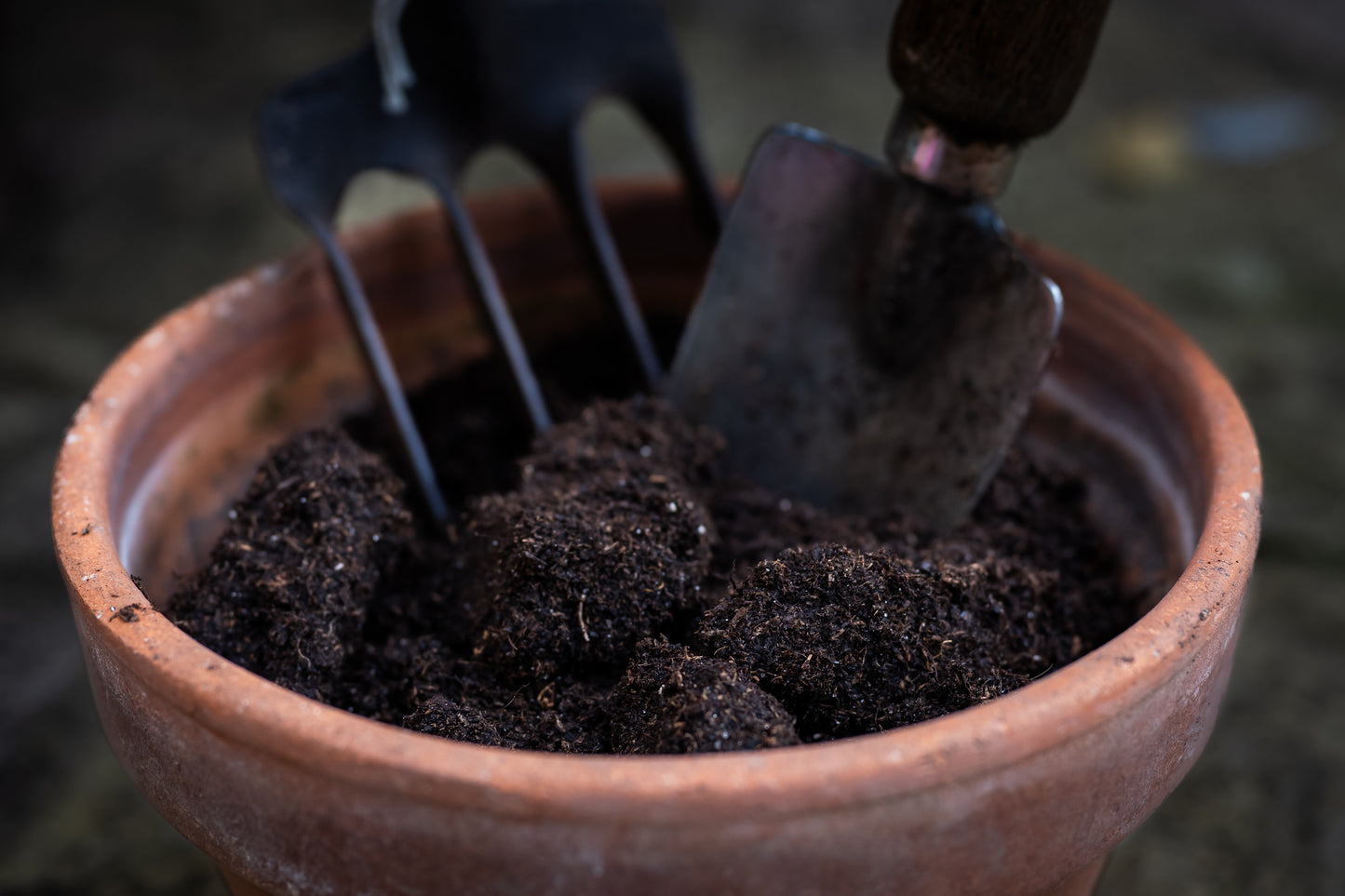
Vermicomposting, the name for composting with the help of worms, is a fantastic way to recycle organic waste into nutrient-rich compost for your garden. But not all worms are created equal when it comes to composting! If you’re considering starting your own wormery to harvest the casts for compost, then you need to make sure you choose the right type of worm.
Let’s explore some of the most popular composting worms and explain why Dendrobaena worms (Urban Wyrm’s colleagues in the soil) are the top choice.
What do vermicomposting worms do?
Composting worms differ from earthworms you might find in your garden. They thrive in organic-rich environments, such as decaying plant matter, and can consume large amounts of food waste quickly. The ideal vermicomposting worm should:
- Be highly active and efficient at breaking down organic material
- Thrive in shallow, warm and moist environments, like a compost bin
- Be resilient to temperature fluctuations and environmental changes
- Reproduce quickly to sustain the worm population in your compost bin
Common worms used for vermicomposting
The best types of worms to use for vermicomposting are epigeic worms. These worms do less burrowing and are more likely to sit on the top soil, eating organic scraps. They’re also good at adapting to living in a wormery or compost bin, so it makes sense to choose epigeic worms to produce worm casts for your gardening.
The most common types of worms used for vermicomposting include:
Red Wigglers (Eisenia fetida)
Red Wigglers are the most well-known composting worms and are widely used in vermicomposting systems worldwide. They are small, reddish-brown worms that thrive in decaying organic material.
Pros
- Highly efficient at breaking down organic waste
- Thrive in indoor and outdoor wormeries/bins
- Adapt well to different environments
Cons
- Less tolerant of extreme cold or hot weather
- Require careful management of bin conditions
African Nightcrawlers (Eudrilus eugeniae)
African Nightcrawlers are larger, fast-growing worms that produce rich, fine-textured worm castings. They’re particularly suited to tropical conditions.
Pros
- Excellent at producing high-quality worm casts
- Grow quickly and reproduce rapidly
Cons
- Sensitive to cold temperatures
- Require warm, humid conditions, which can limit their use in cooler climates
Why Dendrobaena worms are the best for vermicomposting
At Urban Wyrm, we use Dendrobaena worms (Dendrobaena veneta) to produce worm casts, and for good reason. These hardy, adaptable worms excel in a wide range of conditions and consistently outperform other species in various aspects of composting.
Why do we use Dendrobaena worms?
Urban Wyrm uses Dendrobaena worms for our worm casts and compost thanks to their key benefits:
- Resilience: Dendrobaena worms can tolerate a wide range of temperatures, making them ideal for composting in both cooler and warmer climates. They’re much hardier than African Nightcrawlers and Red Wigglers when conditions are less than ideal.
- Versatility: These worms can handle a variety of organic materials, including vegetable scraps, coffee grounds and garden waste, breaking them down into rich, nutrient-dense compost.
- Efficiency: Dendrobaena worms are prolific eaters, capable of consuming up to half their body weight in food every day. This makes them highly effective at reducing organic waste quickly.
- Reproduction: Dendrobaena worms maintain a steady population in a compost bin or wormery, ensuring consistent results.
- High-quality castings: The worm castings produced by Dendrobaena worms are rich in nutrients and beneficial microbes, making them ideal for improving soil health and boosting plant growth.
Urban Wyrm’s Dendrobaena worm casts are incredible for improving soil health. Our worm casts hold 9 times their weight in water, can restore pH balance in the soil and can help suppress pests and diseases, as well as increase plant yields by 200% in our trials.
How to start vermicomposting with Dendrobaena worms
There are a few steps to starting vermicomposting with Dendrobaena worms, but once it’s done it’s worth it for your soil health, plant growth and yields. Here’s a quick run-down of the process:
- Set up your bin: Choose a well-ventilated container with a moist bedding material such as shredded newspaper, cardboard or coconut coir.
- Add your worms: Introduce your Dendrobaena worms into the bin, giving them time to settle into their new home.
- Feed them gradually: Start with small amounts of kitchen waste and gradually increase the volume as the worms adjust. Avoid citrus fruits, onions and other acidic foods.
- Monitor conditions: Keep the bin moist but not waterlogged and maintain a temperature between 10°C and 25°C for optimal worm activity.
Final verdict: Why Dendrobaena worms are Urban Wyrm’s choice
While other composting worms like Red Wigglers and African Nightcrawlers have their merits, Dendrobaena worms stand out for their adaptability, hardiness, and efficiency. They’re the perfect choice for beginner and experienced vermicomposters alike, producing high-quality compost with minimal fuss.
At Urban Wyrm, we’re proud to use Dendrobaena worms in our process, and their outstanding performance is evident in every bag of our Black Gold Organic Compost.
If you haven’t got the time or space to create your own worm casts, try Urban Wyrm’s pure worm cast pouches. Packed full of micronutrients that are perfect for your raised beds, pots, containers and hanging baskets, you’ll see faster and stronger root growth and more blooms.















